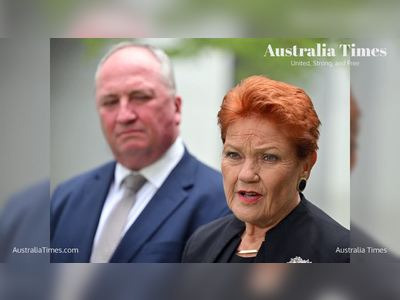
Billionaire Andrew Forrest Challenges Meta Over Scam Ads
Legal proceedings may unveil Meta's role in ad generation as Andrew Forrest fights against fraudulent use of his likeness.
Andrew "Twiggy" Forrest, the Australian billionaire, initiated civil litigation against Meta Platforms, Inc., the parent company of Facebook, in 2021. The lawsuit centers on Forrest's aim to prevent the social media giant from posting fraudulent advertisements that misuse his image.
Recent court hearings disclosed that Forrest's likeness has appeared in approximately 230,000 scam ads across Meta's platforms since 2019.
A significant aspect of the ongoing legal battle involves a court order mandating Meta to disclose specific internal details regarding its advertising processes and the mechanisms through which it targets ads to users.
Meta has been attempting to resist this disclosure for over a year and has been given a deadline of less than 14 days to comply with the court's requirements.
The implications of this case extend beyond Forrest as the potential outcomes could impact Meta's advertising revenue, which was approximately $164 billion in 2022. This figure underscored the centrality of advertising to Meta's business model, contributing to its market cap of around $1.5 trillion.
The firm benefits from legal protections established under the Communications Decency Act (CDA) of the 1990s, which offers immunity to online platforms from liability for user-generated content.
This legal framework has allowed Meta to maintain significant latitude in its operations, including the placement of ads.
Critically, the scope of this immunity is directly tied to Meta's assertion that it does not play an active role in the creation of the ads it publishes.
If the court findings challenge this assertion, victims of fraud may seek to hold Meta accountable for financial losses incurred due to scam ads, which has been a persistent issue affecting multiple sectors of users on the platform.
Prior investigations, including proceedings initiated by the Australian Competition and Consumer Commission (ACCC), have indicated a substantial prevalence of fraudulent advertisements on Facebook.
The ACCC found that a significant portion of cryptocurrency-related advertisements were either fraudulent or not compliant with Meta's own policies.
In a related context, research by a financial institution indicated that upwards of one-third of ads in Facebook Marketplace might be tinged with fraudulent intent.
One complexity that victims face is Meta’s lack of establishing a legal presence in Australia, necessitating that any legal actions be filed in the United States.
Forrest's legal action originated in California, leveraging his resources to navigate cross-border litigation, a challenge that may not be feasible for average users.
The dynamics of accountability for tech companies, especially large platforms like Meta, are under increasing scrutiny in various jurisdictions globally.
The outcomes of this case might resonate within broader discussions about digital platform regulation, consumer protection, and corporate responsibility in the face of online fraud.
Recent court hearings disclosed that Forrest's likeness has appeared in approximately 230,000 scam ads across Meta's platforms since 2019.
A significant aspect of the ongoing legal battle involves a court order mandating Meta to disclose specific internal details regarding its advertising processes and the mechanisms through which it targets ads to users.
Meta has been attempting to resist this disclosure for over a year and has been given a deadline of less than 14 days to comply with the court's requirements.
The implications of this case extend beyond Forrest as the potential outcomes could impact Meta's advertising revenue, which was approximately $164 billion in 2022. This figure underscored the centrality of advertising to Meta's business model, contributing to its market cap of around $1.5 trillion.
The firm benefits from legal protections established under the Communications Decency Act (CDA) of the 1990s, which offers immunity to online platforms from liability for user-generated content.
This legal framework has allowed Meta to maintain significant latitude in its operations, including the placement of ads.
Critically, the scope of this immunity is directly tied to Meta's assertion that it does not play an active role in the creation of the ads it publishes.
If the court findings challenge this assertion, victims of fraud may seek to hold Meta accountable for financial losses incurred due to scam ads, which has been a persistent issue affecting multiple sectors of users on the platform.
Prior investigations, including proceedings initiated by the Australian Competition and Consumer Commission (ACCC), have indicated a substantial prevalence of fraudulent advertisements on Facebook.
The ACCC found that a significant portion of cryptocurrency-related advertisements were either fraudulent or not compliant with Meta's own policies.
In a related context, research by a financial institution indicated that upwards of one-third of ads in Facebook Marketplace might be tinged with fraudulent intent.
One complexity that victims face is Meta’s lack of establishing a legal presence in Australia, necessitating that any legal actions be filed in the United States.
Forrest's legal action originated in California, leveraging his resources to navigate cross-border litigation, a challenge that may not be feasible for average users.
The dynamics of accountability for tech companies, especially large platforms like Meta, are under increasing scrutiny in various jurisdictions globally.
The outcomes of this case might resonate within broader discussions about digital platform regulation, consumer protection, and corporate responsibility in the face of online fraud.
AI Disclaimer: An advanced artificial intelligence (AI) system generated the content of this page on its own. This innovative technology conducts extensive research from a variety of reliable sources, performs rigorous fact-checking and verification, cleans up and balances biased or manipulated content, and presents a minimal factual summary that is just enough yet essential for you to function as an informed and educated citizen. Please keep in mind, however, that this system is an evolving technology, and as a result, the article may contain accidental inaccuracies or errors. We urge you to help us improve our site by reporting any inaccuracies you find using the "Contact Us" link at the bottom of this page. Your helpful feedback helps us improve our system and deliver more precise content. When you find an article of interest here, please look for the full and extensive coverage of this topic in traditional news sources, as they are written by professional journalists that we try to support, not replace. We appreciate your understanding and assistance.











